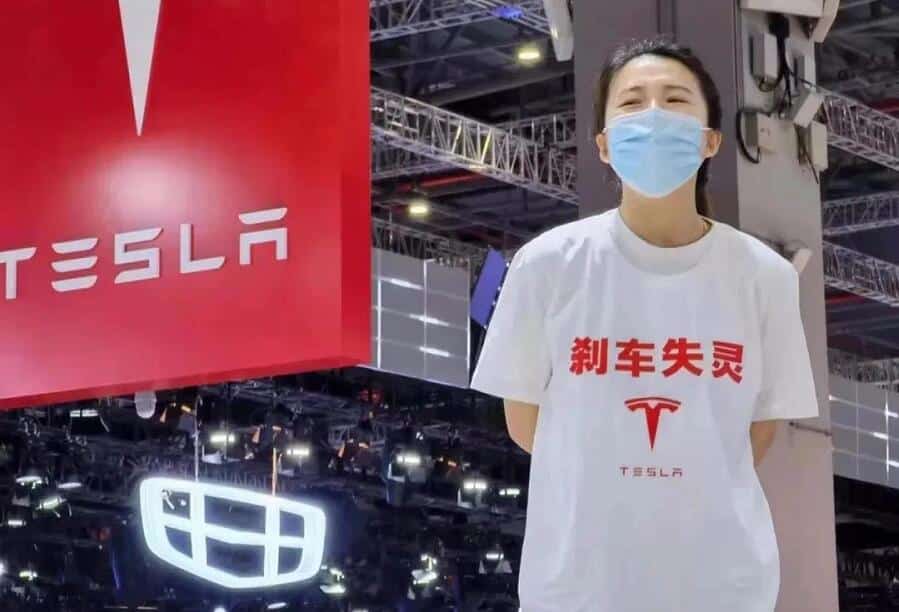On the first day of the Shanghai auto show, Tesla came into the spotlight over an owner's complaint about brake failure. The company's handling of the situation was questioned by Chinese official media.
In a commentary published Tuesday, Xinhua News Agency said the arrogant response from a Tesla executive gave little sense of sincerity in solving the problem.
The article mentioned that at the Tesla booth at the Shanghai auto show, a female owner stood on top of her car wearing a T-shirt with the words translated as "Brake Failure" in protest, sparking widespread concern.
Subsequently, an executive of the company responded that "there is no way to compromise, it is a process that new products must go through", and stressed that "their own research shows that 90% of customers are willing to choose Tesla again".
At present, both sides are sticking to their own arguments, and it is difficult to make a hasty conclusion on the truth, pending an in-depth investigation by the relevant departments to determine the points to stop the dispute, the article said.
From the reaction of Internet users, the arrogant response of the Tesla executive has left many people puzzled, the article said, adding that, in particular, the expressions of "the recent negative is her contribution" "I think she is also very professional, someone should be behind this" are not quite right.
A company can't satisfy everyone, but as a "star" company, it should have the products and services to satisfy consumers, the article said.
Extreme advocacy is not encouraged, but as some Internet users have said, "Who would risk standing on top of a car if consumers could defend their rights smoothly?" the article writes.
If car companies fail to provide quality products and good after-sales service, fail to guarantee consumers safe driving, or even maliciously speculate on the motives of rights defenders, they may tarnish their own brands, the article said.
China is one of the world's largest auto production and sales markets, and an important market for globally renowned car companies to compete for. No matter which car company, it must have respect for the Chinese market and accept consumer supervision sincerely, the article reads.
For the problems reported by consumers, car companies should establish a smooth complaint handling channel. Otherwise, in the long run, the car companies concerned are likely to be marginalized by the market, according to the article.
If car companies are suspected of "bullying customers", the relevant departments should also strengthen supervision, the article said, adding that this can force car companies to improve quality, but also to help protect the legitimate rights of consumers.
